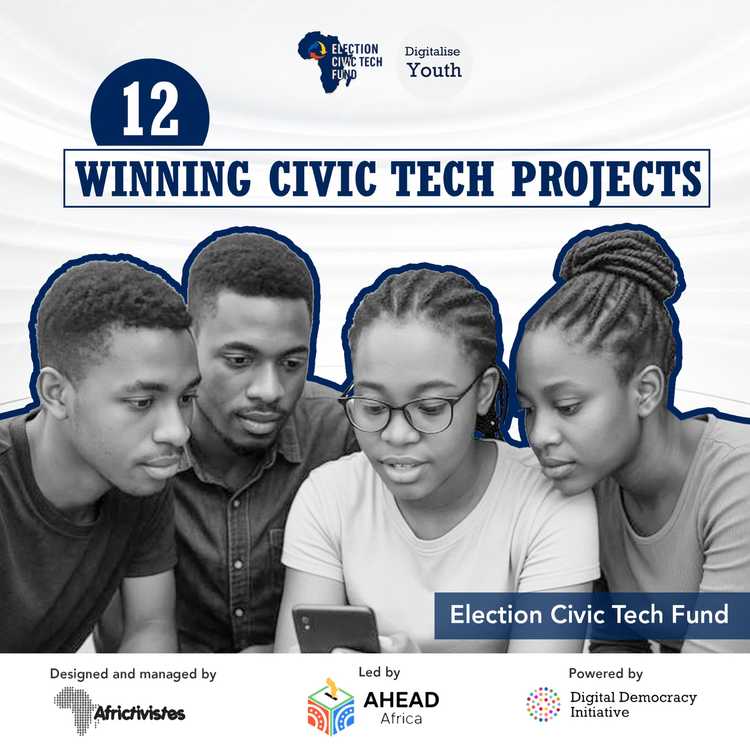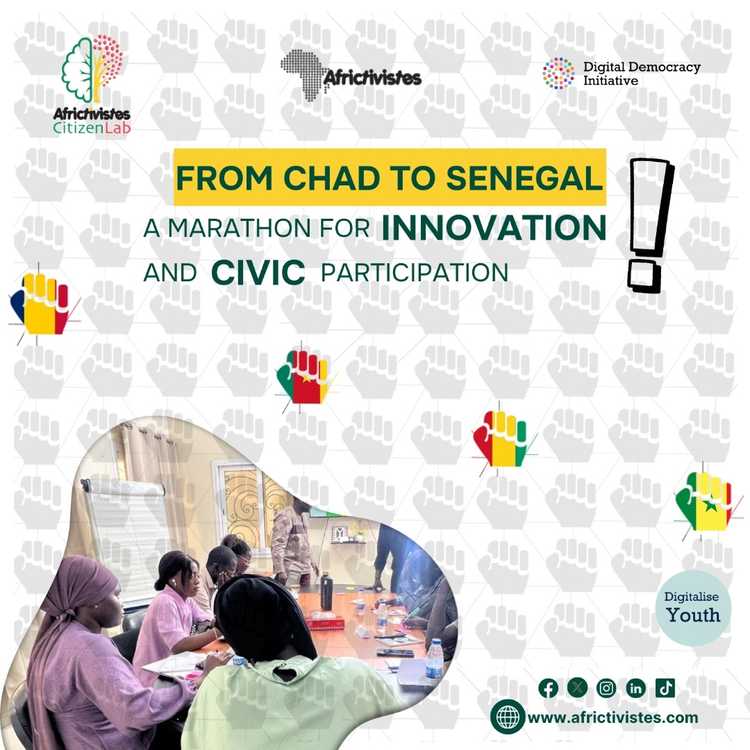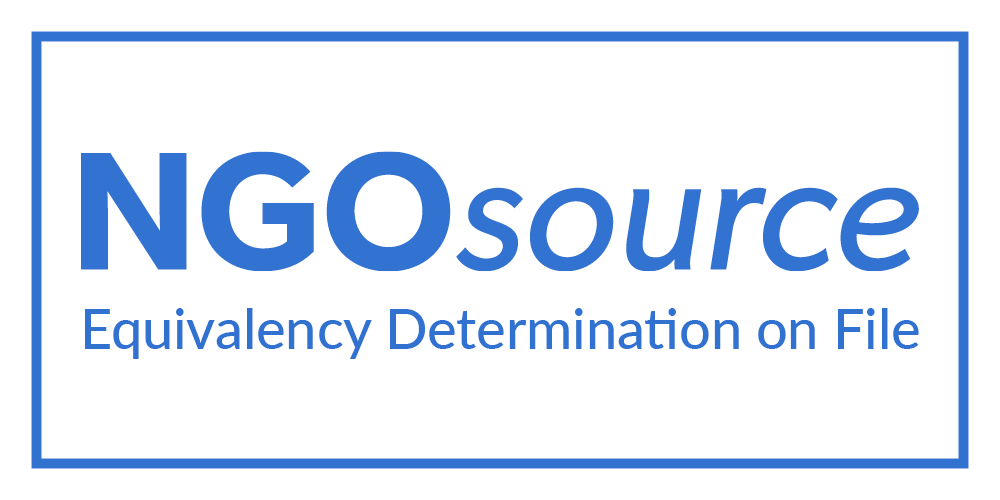One presidency, regime, two terms in office: AfricTivistes expands on Senegal’s democratic decline
AfricTivistes premiered its documentary film ‘Senegal: one regime, two terms in office’ on Thursday, March 7, an opportunity to further Senegal’s democratic trajectory, and for an advocacy by various players on Senegal’s democratic decline.
AfricTivistes programmes coordinator Aisha Dabo affirmed that this cinematographic project is more than just a documentary: “We are gathered here not just to watch a documentary, but to weave together the threads of a future where democracy is not a distance ideal, but a tangible reality, experienced and upheld”, she said in her inaugural address.
This first AfricTivistes documentary explores the trajectory of Senegalese democracy, focusing on the changes of power periods of 2000 and 2012. It aims to raise awareness on the harmful consequences of not upholding the Constitution and presidential term limits.
“This film is not just a story, it’s a mirror reflecting the challenges and hopes of the nation. This film reminds us of the sacred values of our rights, it’s a call to awareness, a call to action to reaffirm our commitment to Senegal,” she added.
The event was attended by prominent figures from public and political life. They include former ministers Prof. Penda Mbow, Prof. Ndioro Ndiaye, Amadou Tidiane Wone, Elimane Haby Kane, executive director of Legs Africa, Aliou Sané, coordinator of Y’En A Marre, Constitution expert Prof. Babacar Gueye…
The speakers took their analysis a step further with three panels on the importance of presidential term limits, political and institutional solutions to save Senegalese democracy, socio-cultural dynamics and civil society’s commitment to upholding democratic values. The event marks the official launch of AfricTivistes’s project Un Pouvoir, Deux Mandats.
The need to rebuild the model of democracy
Discussions of the first panel focused on the importance of presidential term limits, with the film’s contributors taking a closer look at the themes raised in the documentary. Activist Jaly Badiane, featured in the documentary, calls for a “change in the political class”. “Over the past 12 years, we have witnessed a decadence culminating in the postponement of elections”, she decried.
For Elimane Kane, a sociologist, this democratic decline reflects a certain failure of the democratic model. “We need to decolonize our approach to democracy from its Westernist path. We need to deconstruct our democracy by building its substance ourselves in relation to our sociological values”, he said, arguing for a two-term limit or a single 8-year term.
For his part, Mamadou Seck is banking on the sovereignty of the people and the contribution of civil society. “In a democracy, elections are essential to reinforce legitimacy and give impetus to good governance. However, we need a citizen watchdog to stop anti-democratic impulses.”
Journalist Ayoba Faye concluded: “Our children, our grandchildren, must have missions other than fighting for fundamental human rights such as freedom of expression and the right to information.”
What institutional reforms are required?
Panelists of the roundtable discussion ‘on political, legal and institutional mechanisms for strengthening the rule of law’, madea number of recommendations for restoring Senegalese democracy to its finest status.
Elhadj Abdoulaye Seck of Amnesty International points to five necessary reforms. “Strengthening access to information, setting up spaces and platforms for citizen consultation, enabling citizens to bring cases before the constitutional council, strengthening the right to demonstrate, elevating the right to petition to an institutional level”. In this same line, Aliou Sané believes that there are two major reforms to be made “resolving the hyper-presidency issue and reforming the judiciary.”
“The question of education is key. We need to coach these young people, particularly on citizenship,” pleaded former Social Development Minister Ndioro Ndiaye. Meanwhile, former Culture Minister Amadou Tidiane Wone called for “a quality media that is up to the task.”
In addition, the panelists defended the importance of having an education in socio-cultural values. “What our culture can bring to our democracy is a sense of commitment, a sense of courage. These leadership values such as Joom (honnor), Jomb(dignity) and Fitt (bravery)”, emphasised the historian El Hadj Amadou Dieng. “Exploring our socio-cultural wealth could enable us to deal with many of the political crises we have experienced”, he maintained.
A memorandum on term limits with the recommendations formulated during this workshop will be produced and shared with civil society organisations working on democratic governance issues in Africa.
The workshop was crucial in reflecting on the decline of democracy in Senegal. The recommendations formulated during the panels offer concrete avenues for strengthening the rule of law.
AfricTivistes also deployed a web platform to gather feedback from internet users on this film production.



![[Guinea-Bissau]: Joint Statement from Human Rights Defenders Against the Confiscation of Popular Will !](/static/8552596543d1c00bc73e662f85c0a62f/fce2a/Capture-decran-2025-12-01-a-16.34.43.png)
![[Guinée-Bissau] Joint Declaration – Afrikajom Center and AfricTivistes both firmly condemn the military takeover and warn of the risk of a political crisis !](/static/4d5ad12346b3ef8c55278621c445488b/9e635/Putsch-Guinee-2.jpg)

![[Tanzanie] 🇹🇿 AfricTivistes strongly condemns violent suppression in Tanzania](/static/adf91a1c13cd101f988b6b6971928880/9e635/TZN.jpg)
![[Cameroon] AfricTivistes condemns violent repression, urges govt to uphold rights !](/static/6399a9d8e94e3ae1f681f86178520d96/9e635/WhatsApp-Image-2025-10-27-at-15.32.48.jpg)



![[Madagascar] Generation Z, the driving force of civic awakening!](/static/9072e289fdab44c062096dcfb9499441/9e635/4-2.jpg)









